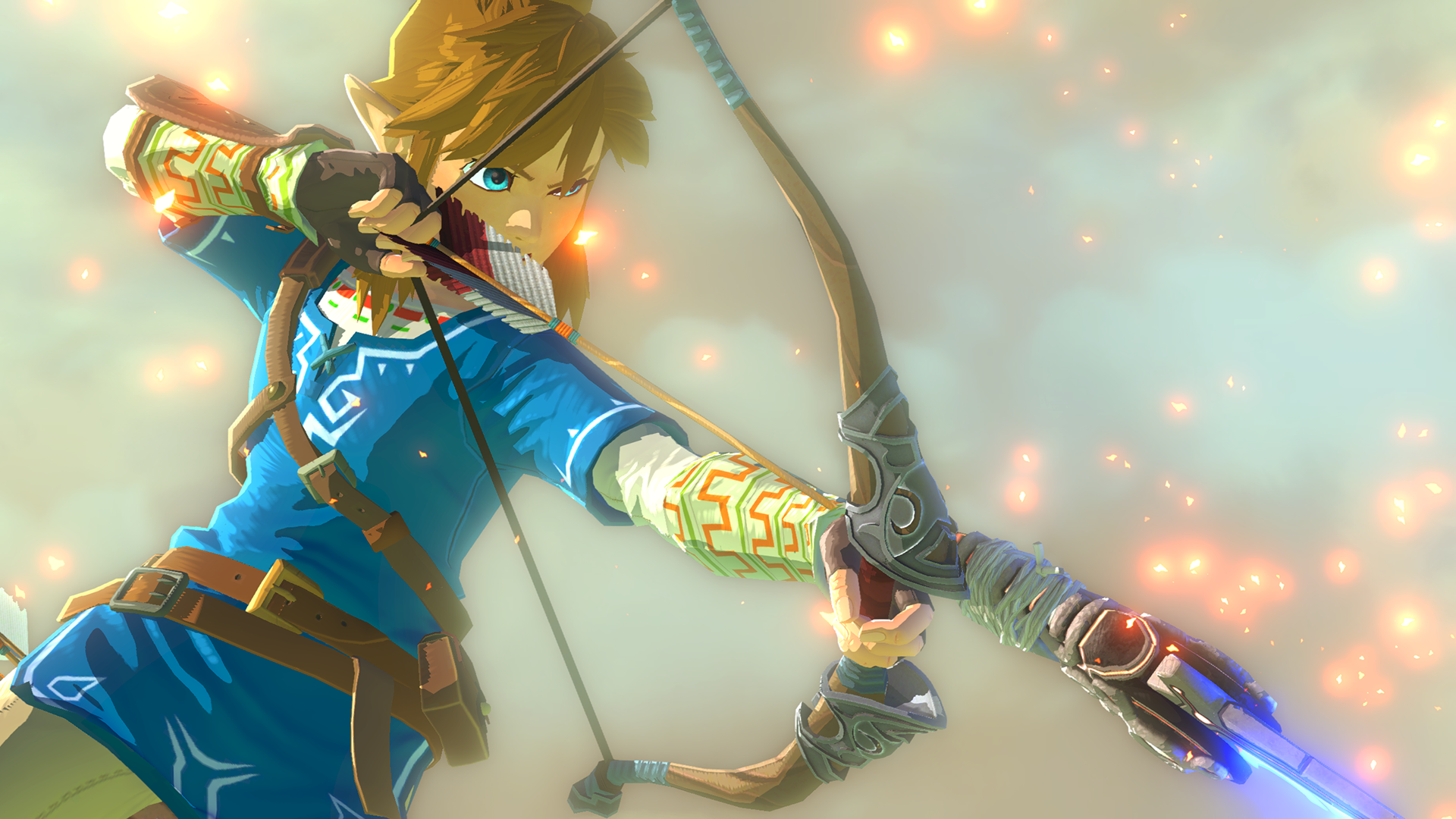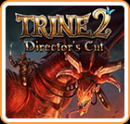First of all, before anyone starts flaming me, I don't think Smash Bros sucks! This is an article from IGN's insider series. Long read, but it'll make you laugh at the stupidity. :p
"Contrarian Corner: Super Smash Bros. Brawl
We explain why Nintendo's spectacular brawler is dead on arrival.
March 12, 2008 - Contrarian Corner is a new feature on Insider meant to take a more critical look at some recently-released games. The average review tends to treat a game as an objective product, evaluating its merits based on a series of frequently technical categories, like sound, framerate, gameplay interface, value, variety of modes, and overall fun factor. This typically doesn't leave much room to look at a game's thematic elements or how well they are integrated with the game's technical components. To that end, Contrarian Corner is intended to be a place for a more holistic discussion of games which have been the recipient of either an abundance of single-minded praise, or an undue amount of criticism. We won't be taking cheap shots or lobbying baseless accusations from the bully pulpit, but, instead, aim to start a conversation about the human value of the games we play and how they might evolve from here. If you're interested in joining in, keep reading.
The Smash Bros. series is a strange anomaly on the face of gaming. It's a fighting game that's not really a fighting game. It's a platformer that's not really about platforming. It's an unabashed revelry in all things Nintendo, but resists simple classification as indulgent fan service. Smash Bros. games have become a point of obsession for many hardcore fans and spawned a thriving culture of tournament play with an encyclopedic set of moves, exploits, and counters. Super Smash Bros. Brawl for Wii continues all of the most distinctive qualities of the series in what has already become one of the best-reviewed games of all time. All of which is strange because of how disjunctive and vapid the game really is, once you dig into it. So then, let's dig into it.Smash Bros. is designed around approachability. Throwing out the more traditional fighting game approach of convoluted sequences of button presses and joystick manipulation, Smash Bros. ties every character's move set to a single button push in combination with a single directional press on the analog stick. If you can do one character's moves, you can do them all. The unintended result of this control setup is a lop-sided disconnect between the interface and the attack types and the length of their animations. Having an identical input for a move that lasts a quarter of a second as for a move that has an animation over a second long creates a strange break between the games controls and the action in the game.
You can learn to work around the distancing effect of Brawl's attack animation and disconnected controls, but it goes against the most basic input/feedback loop that gaming is built on. The most compelling games are the ones with the smallest distance between the player's input and the game returning a result based on their input. From hitting a button to spin a Tetris block to angling an analog stick to change your aim in Halo, having direct and immediate feedback at all times in a game is the umbilical cord which connects players to the fabricated game world. In Brawl, you're all too frequently mashing buttons to move your character while nothing happens because they're still finishing off the animation from a previous move, be it an exaggerated dash, an ornate butt stomp, or a charged special attack. Learning the timing of each attack goes a long way to making the basic system of attacking more playable, but there's little denying that it's a system which requires the player to work around moments of non-interactivity.
The typical parry for this criticism has been that the person just isn't good at the game. "You don't understand the game because you suck at it." This is argument is totally antithetical to the stated purpose of the game being approachable above all things. If you have to have skill to understand Brawl, what's the point of the simplified control scheme? Indeed, if I suck at the game it should be more enjoyable to me, since I'm the intended audience for whom the game has been balanced. No, the schism between liking and disliking Brawl isn't based on skill but aesthetics. In short, Brawl, like its predecessors, is a game that panders and basely titillates the players who greedily drink in every absurd frame of animation and all of the go-for-broke explosions and special effects. Brawl, more so than any previous Smash game is a fantasia of pure whimsy disconnected from any deeper meaning.
Whereas the original game had the clever framing device of the Master Hand serving as the imperiously omnipotent hand of the child forcing his toys into uncharacteristically violent action, Brawl has forgone the concession of its nonsensical origins. In place of the parable of Master Hand, we're given the randomly epic narrative of the Subspace Emissary strolling through Nintendo-land turning all of Kyoto's most precious icons into statues. In the original Smash, there was an implicit concession to the notion that all of the players were inanimate puppets being actively manipulated by the player/hand. That paradigm is reversed in Brawl, where the characters begin as sentient creatures with lives outside of their individual game worlds, who are only objectified by some nefarious ray gun which shoots, presumably, some cartoonish version of Eddington's time arrow. In Subspace Emissary, Sakurai has made a tragically detrimental shift in theme that takes the meager but effective framing of the original and turns it into an unbridled exercise in masturbatory excess.
In other words, Smash Bros. Brawl is a developmentally regressive experience when played on the highest level. It allows players to walk backwards through time and entertain the same primal amusement of a child laughing disconnectedly at the bright flashing colors and lights on the TV screen. There's certainly nothing inherently bad about offering that kind of an experience, but neither is there anything remarkably enlightened or special about it. While the original Smash at least had a sense of perspective about the experience it offered, Brawl has gone totally insane with its branding and self-referential arcana. If it's difficult to have a good time with the game's cumbersomely-timed controls, it's all but impossible to invest in a world whose primary motivation is to nurture your inner toddler.
There's a fine line between simple, family-oriented stories and pure exploitation. This is a line Brawl has crossed irredeemably, making it a hollow and vapid tome to the corporate iconography that has financed its development. In films like Toy Story and Bambi, simple family-friendly aesthetics are presented in a way that unabashedly appeals to, and entertains, the remnant youngster in all of us. Yet, these stories are couched in terms that acknowledge the fundamentally fleeting quality of that childish wonder. In short, these stories are about growing up. The presence of Master Hand as the centralizing villain in the original Smash game was a conscious conceit to the immature state of mind of a person capable of investing themselves in an absurd fantasy world where Mario would have to fight ten Captain Falcon's in a row. In Brawl the script has been flipped, portraying the world where our little mascots might exist as empty objects (i.e. the real world) as the ridiculous one.This theme is all the more disturbing given the uniquely corporate ties that Brawl has. Like every Smash game, Brawl is an unabashed promotional pamphlet for anything and everything Nintendo has done. Sakurai and his team have taken enormous pains to stuff Brawl to the gills with nods to hundreds of old Nintendo titles. His approach treats every game as a sub-franchise that exists under the all-knowing banner of Nintendo which has been the patron of them all, in one form or another (Sonic and Solid Snake excluded). The unfortunate irony is that this meta-celebration totally neuters the charm that any of the characters have as individuals. Mario and Samus exist at cross-purposes, as do Link and Captain Falcon. So much of what makes each character special is lost through the game's silent emphasis on Nintendo as the generative deity that has spawned them all. Miyamoto didn't create Link for a specific reason, "Nintendo" willed him into being. Is this not the very image and embodiment of corporate propaganda?
Smash Bros. famously began as a prototype for a generic martial arts game and it's tempting not to imagine what would have happened with the series if Nintendo had never agreed to let its mascots be used in the game. Would the fighting mechanics be as compelling if all of the same moves were tethered to a series of Bruce Lee clones? Would the Pavlovian outbursts of joy be the same if it was a ninja performing Link's spin attack? It's difficult to imagine that anyone would care. The disappointing truth of Smash Bros. Brawl is that of a game with unresponsive controls, a vapid narrative context, superficially titillating visuals, and a deeply disturbing nod to the corporate progenitor to which so many players associate their personal gaming experiences with.
"But it's fun." This is the argument any conversation about Smash Bros. always returns to. What is fun about it? Is it simply the experience of being good at something? Is it the wonder of seeing all your favorite childhood toys in one centralized hub world, fully pliable and willing to supplicate to your whims? Is it the experience of playing against your friends in an absurd cartoon world where all the normal constraints of real life fade away in the charred path of Pikachu's lightning strike? Isn't it, instead a kind of mass hypnosis (all too common in the gaming world) where we mutually convince ourselves that the brand is the message; that the label we package the experience in is paramount? Playing Brawl is an uncomfortably empty experience. When I put down the Wii remote and nunchuk (yes, that's how I prefer to play) and walk away from the Wii, I feel like I've given more of myself than I received in return from the game. It doesn't matter, finally, whether I've won or lost because the game has provided me with nothing but distraction.
Super Smash Bros. Brawl represents the very worst face of gaming, the side which takes us away from ourselves in a catatonic hypnosis and with no greater reward than time out of mind. Forgive me, but I don't approve, and I'm not resigned."
Nintendo Network ID: Cheebee 3DS Code: 2320 - 6113 - 9046















































 LEAGUE
LEAGUE








